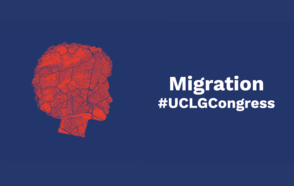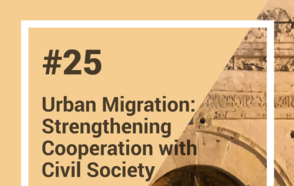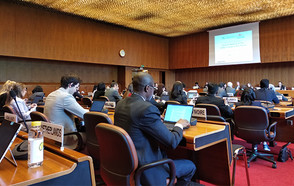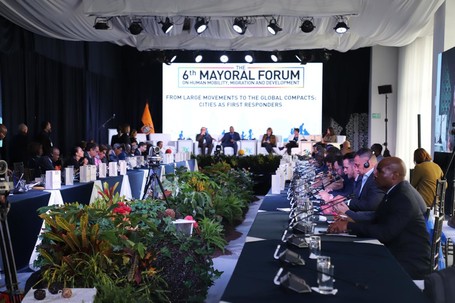
In the framework of the Global Forum on Migration and Development (Quito, 20-24 January), the 6th Forum of Mayors and Mobility and Development brought together on January 22nd more than 80 local representatives from 56 cities. Through the Mayors Mechanism, for the first time local governments sat down at the table with national governments and international organizations to claim their central role in migration governance and to call for concrete steps towards the multilevel governance promoted by the Global Compact on Migration.
One year after signing the Global Compact and the Marrakech Mayors Declaration, local authorities met in the Ecuadorian capital to demand new forms of cooperation and a new narrative on human mobility that promotes inclusive practices and protects human rights against discriminatory and divisive practices. In an unprecedented exercise of dialogue with the national level, the Forum of Mayors called for the strengthening of local action for the construction of inclusive forms of citizenship and demanded the support of all social actors and levels of government to mitigate the social fractures caused by increasingly security-based approaches to migration that relegates human rights to second place.
This year, beyond the Mayoral Forum, local governments participated in four thematic State-led round tables and in the so-called Common Space, in which actors of different nature related to migration governance reflected together on common challenges and action strategies to guarantee basic services, protect the most vulnerable and face criminalizing discourses on migration and migrants. In this vein, the Mayoral Mechanism highlighted the decisive role of local governance.
"As the first actors to respond to the effects of population flows, whether internal or external, and as the level of government that welcomes newcomers as neighbours, local and regional governments cannot be and are not mere implementing partners "
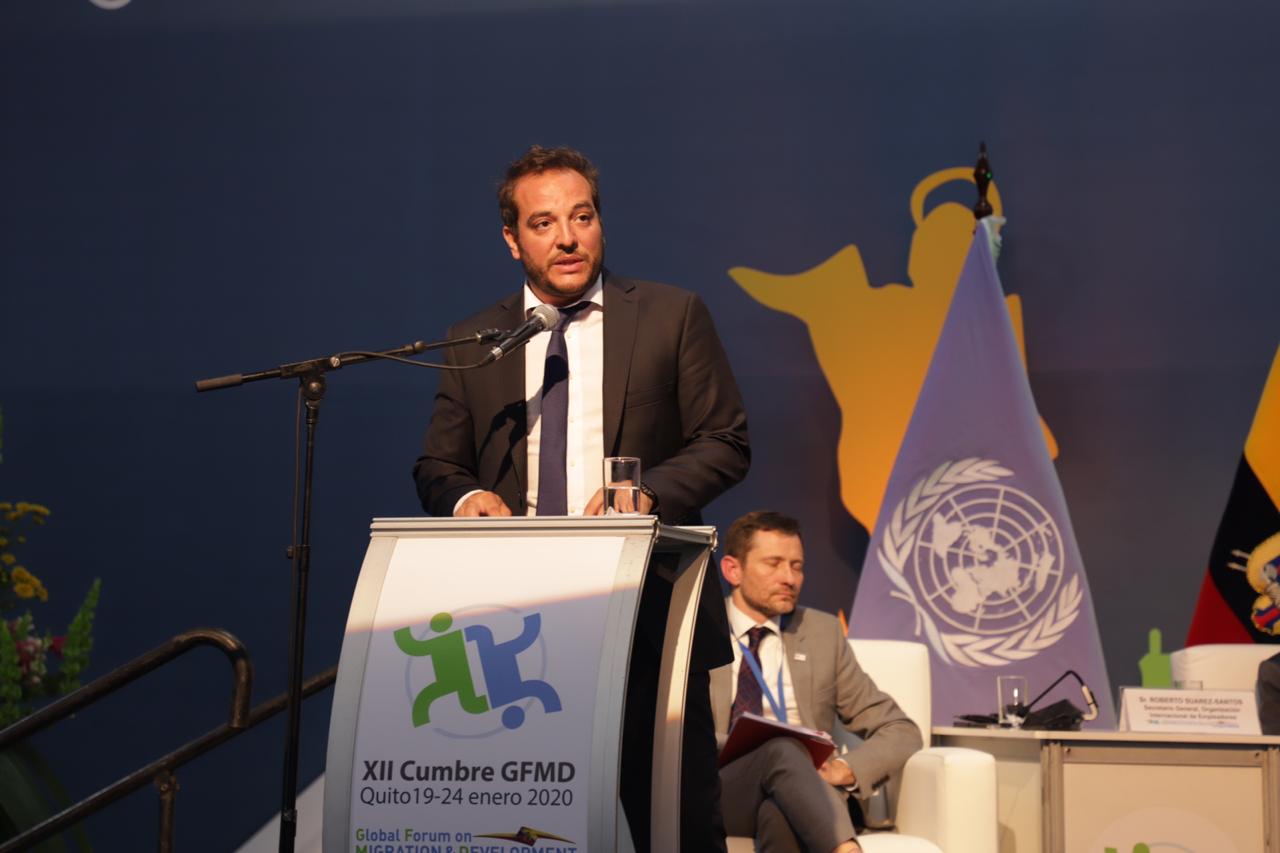 Christian di Candia, Mayor of Montevideo and Vice-President of UCLG, raised the voice of local governments at the opening of the Global Forum on Migration and Development, recalling that "local authorities have valuable experience to share when it comes to fostering community cohesion in the face of the fearful and divisive rhetoric surrounding migration and migrants".
Christian di Candia, Mayor of Montevideo and Vice-President of UCLG, raised the voice of local governments at the opening of the Global Forum on Migration and Development, recalling that "local authorities have valuable experience to share when it comes to fostering community cohesion in the face of the fearful and divisive rhetoric surrounding migration and migrants".
In this regard, Emilia Saiz, Secretary General of UCLG, criticised "the excessive weight given to South-North migration" and called for the recognition of local governments as providers of basic services that are essential for inclusion. "There is something intrinsically wrong with the international legal framework because it does not allow us to guarantee the rights of migrants".
In his interventions at the Global Forum and the Mayors' Forum, the Director General of the International Organization for Migration, António Vitorino, welcomed the growing weight of local authorities in the global governance of migration and stressed that "the establishment of the Mayors Mechanism brings a crucial actor to the migration governance table". Furthermore, Vitorino wanted to stress that "interventions are only effective when local and national authorities work together".
For his part, the Mayor of Lampedusa, Salvatore Martello, said that "cities are not tired of helping migrants, but of being alone in doing so". In his speech, Mayor Martello reviewed the responsibilities that local authorities face with scarce resources and competences, sometimes outside the legal framework, and reaffirmed the alignment of local governments with the Global Compacts and the need for dialogue and agreement among actors for their fulfilment.
Among the issues addressed, local governments focused on access to basic services, the fight against discrimination and mechanisms to support local action in favour of inclusion policies. In addition, UCLG Africa organised a dialogue on transit camps and migration routes between African and Latin American cities with examples from Mali, Naroc, Mexico, Niger and Tunisia. During these discussions, the impact of transnational return policies on the fabric and coexistence in transit territories was highlighted.
- Marrakech Mayors Declaration - The 5th Mayoral Forum on Humaan Mobility, Migration and Development.
- Call to Action.
- Continue Reading here











